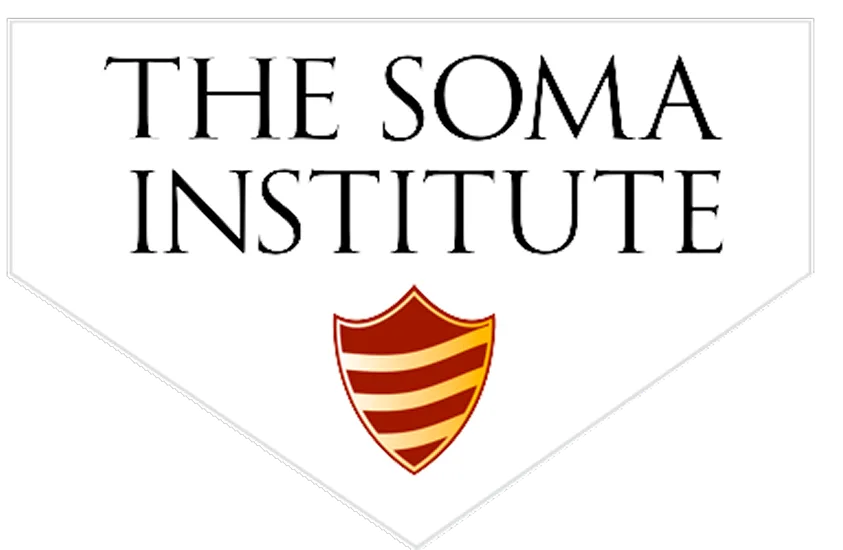By Joan Hannant, Founder & CEO of The Soma Institute
Clinical massage therapy is gaining recognition as an essential component of holistic health care, integrating seamlessly with broader health care systems to support overall well-being. As part of an integrative approach, clinical massage therapy not only helps alleviate physical discomfort but also promotes mental and emotional wellness. Let’s explore how clinical massage therapy fits within a holistic health care model, emphasizing the importance of anatomy and pathology knowledge, and the value of collaboration with other health professionals.
- Clinical massage therapy integrates effectively with broader health care systems, supporting both physical and emotional well-being.
- Anatomy and pathology knowledge are crucial for clinical massage therapists to provide targeted treatments that address root causes of discomfort.
- Collaboration between clinical massage therapists and other health professionals ensures comprehensive care and optimal patient outcomes.
- Research shows that massage therapy helps reduce stress, improve mood, and enhance emotional well-being, crucial for patients dealing with chronic conditions.
- As integrative health care grows in popularity, clinical massage therapy remains a vital component for enhancing patient care and holistic wellness.
Integrating Massage Therapy with Health Care Systems
Clinical massage therapy has evolved from being viewed as a luxury to being embraced as a critical element of patient care in hospitals and medical facilities. As the Mayo Clinic highlights, medical massage therapists work alongside doctors to treat patients dealing with conditions such as chronic pain, fibromyalgia, and injuries, offering a complementary approach that enhances traditional medical care (Mayo Clinic, 2024). This collaborative environment allows therapists to tailor treatments to address specific health conditions diagnosed by a physician, ensuring a personalized and effective healing experience.
Integrating clinical massage into conventional health care settings offers significant benefits, particularly in improving patients’ quality of life. By focusing on the manipulation of muscles and soft tissues, clinical massage therapists help reduce pain, enhance mobility, and support faster recovery. As more hospitals and clinics adopt holistic and complementary therapies, clinical massage therapy continues to establish its role in enhancing patient care and promoting overall wellness.
Importance of Anatomy and Pathology Knowledge
A deep understanding of anatomy and pathology is vital for clinical massage therapy practitioners. This knowledge ensures that therapists are well-equipped to provide targeted and personalized massage treatments that address the root causes of the discomfort rather than just managing symptoms.
Clinical massage therapists often receive additional training to expand their knowledge of specific conditions, such as neuropathy, cancer, and sports injuries. This specialized training allows them to adjust their techniques to suit patients’ unique needs, whether it’s reducing scar tissue post-surgery, alleviating chronic pain, or enhancing circulation to aid recovery. By understanding the intricacies of the human body, clinical massage therapists can better collaborate with other health professionals and contribute meaningfully to a patient’s care plan.
Collaboration with Other Health Professionals
Holistic health care emphasizes collaboration between different health disciplines to provide the most comprehensive care possible. Clinical massage therapy fits naturally into this model, where therapists work closely with doctors, nurses, physical therapists, and other medical professionals to support patients’ health outcomes. Integrative health care—which includes massage therapy—is becoming increasingly popular as patients and providers seek comprehensive care that addresses both physical and emotional aspects of health.
This collaborative approach allows for coordinated care, where each professional involved in a patient’s treatment plan contributes their expertise to achieve optimal health outcomes. For example, a massage therapist might work with a physical therapist to help a patient regain mobility after surgery, or collaborate with a physician to manage a patient’s chronic pain more effectively. By being part of a larger health care team, clinical massage therapists provide an added layer of care that helps bridge the gap between traditional medical treatment and holistic well-being.
Supporting Holistic Wellness
Beyond physical health, clinical massage therapy also supports emotional and mental well-being. According to a study conducted by Minnesota State University, holistic practices such as massage are increasingly recognized for their ability to complement traditional health care by reducing stress, improving mood, and fostering a sense of relaxation (Minnesota State University Study, 2017). These benefits are particularly important for patients dealing with chronic illness or recovering from surgery, where emotional health plays a crucial role in the healing process.
Massage therapy has been shown to provide holistic healing by decreasing cortisol levels, the stress hormone, while increasing serotonin and dopamine—neurotransmitters associated with mood enhancement and relaxation. By providing a calming and supportive experience, clinical massage therapy helps patients manage anxiety, improve sleep quality, and feel more empowered in their recovery journey.
Moving Forward with Integrative Health Care
Clinical massage therapy plays a significant role in holistic health care, integrating seamlessly with broader health systems to enhance patient outcomes. By combining in-depth knowledge of anatomy and pathology with the ability to collaborate effectively with other health professionals, clinical massage therapists contribute to a comprehensive approach to health and wellness. As the demand for integrative health care continues to grow, clinical massage therapy will remain a vital tool in helping patients achieve both physical and emotional well-being.
If you are interested in becoming part of this dynamic field, The Soma Institute offers comprehensive training programs designed to equip you with the skills and knowledge needed to thrive in the evolving landscape of massage therapy and holistic health care.
Apply online today or take our quiz to see if clinical massage therapy is the right career path for you.
References:
https://cornerstone.lib.mnsu.edu/cgi/viewcontent.cgi?article=1687&context=etds
